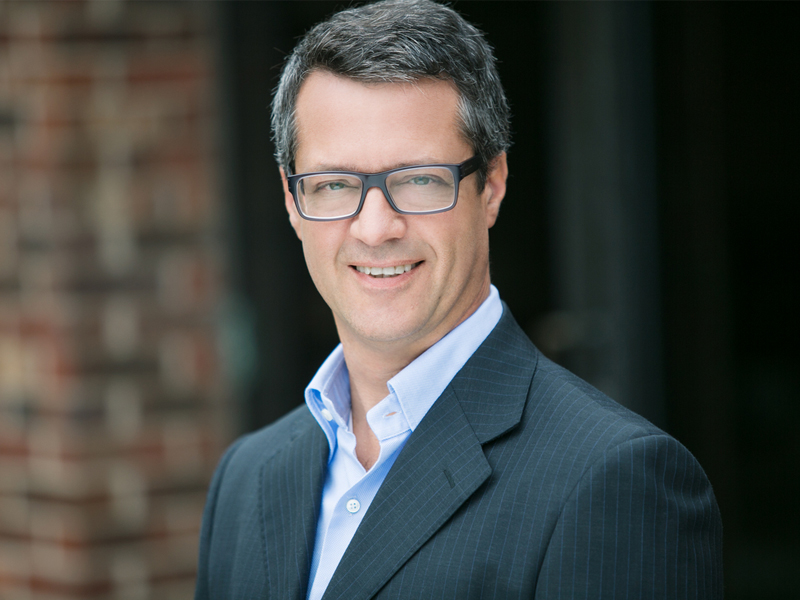Returning to our series of interviews with global influencers we talk to Roberto Di Bernardini, who after almost a decade of HR leadership at Johnson&Johnson is now based between London and Madrid with Banco Santander.
Many thanks for your time today Roberto. We last met in London in December 2016 which was still your first year at the company. You’re now around 18 months into your role. So how is life at Santander?
Things are going exceptionally well Steven. We’re implementing some new processes and initiatives including a new performance management system. At the core of all this change, and something I’m most happy with, is the change in mindset in the people. We’re working specifically with how leaders behave in the organisation and look at them as ambassadors for the values and behaviours we want to promote as a company, both internally and externally. And as you know given some of our previous conversations we are continuing to develop the BeHealthy global brand which looks at improving people’s health not only at work but also at home, something that is highly appreciated.
Are there specific challenges in the banking sector with some of these changes? Especially regarding the health initiative?
In a way yes. The biggest thing is convincing sceptics that investing in soft aspects can really pay out. There was a lot of lets say “healthy” scepticism at the beginning but around a year after the global launch I’m very happy with progress.
You come with 9 years experience leading the HR function at J&J. How has that time prepared or impacted on what you’re doing now?
It’s true that J&J have a longer culture of investing in these type of initiatives but that is what makes our current work exciting. In general, there is a massive difference in managing people compared to 30 years ago. There is now a greater consensus around the importance of taking a holistic approach and taking care of people both professionally and personally. It’s not just about their professional or skills development but making them better human beings, and this necessarily involves physical and mental health. We have a duty to look after our humans while the science also shows that this personal development has significant professional benefits. For one, greater balance significantly improves energy.
Yes, some of my recent conversations with academics have looked at this overspill between the work and home environments. If a person isn’t healthy or well in one place, it is often the same in the other. So are you measuring any of these impacts? Can you give me some examples?
Sure. One example is the development of leadership soft skills in general. 40% of our new approach to performance management looks at how they are perceived as a leader, with many of the key metrics aligned with my comments so far. This is a 360 evaluation as part of our engagement survey with direct reports, peers and boss’s all asked to evaluate how the Santander behaviours are present in the person’s leadership activity.
Regarding the BeHealthy initiative specifically we are starting to measure and track country-level data such as cholesterol in Poland, comparing that with the national average and other health markers in other countries including Spain such as blood pressure.
Who owns and manages the BeHealthy programme? You?
Santander has a long history of country specific initiatives and projects. What I did when I came in was to create a global brand and try and consolidate the existing energy and momentum. I think the visibility has helped people around the world while we have added one or two large global initiatives to really capture the imagination.
So you’re helping to make it more strategic right? Does it get to ROI?
Yes. Impact on the P&L is certainly part of our future vision yet as you well know, behaviour change doesn’t happen overnight. We’re thinking more on a 5-year timeframe rather than financial year. Studies have shown that for every dollar spend in health there is a $3.70 return so there’s certainly a precedent.
Yet I think there is always a part that is immeasurable and simply regards improving the motivation of people, simply showing them that we care can have a massive impact on how people engage and perform.
That’s a great point. I guess this regards culture and in the same way that there has to be a business case at some level to overcome scepticism, perhaps to fully engage other people there has to be a lack of measurement to show that you’re doing things just to “do the right things” as opposed to always looking for the business benefit.
So what about the future of HR? Anything else to add?
Two things come to mind on the future. The way we manage people will become digitalised. We have developed a new digital academy to support the mindset and behaviour approach I talked about earlier. We are moving towards having much more reliable data to take care of the engagement and development of our people. More sophisticated predictive analytics will make clear what people need and we’re also developing a global platform at Santander in this area.
The second thing regards purpose. As a business we have a purpose in society while we can also help people find and develop their own personal purpose within that. Now as an industry I recognise that there are some examples in the recent past of the antithesis of having a responsible and ethical role in society but both in banking and any other sector purpose has to be something that goes beyond a poster on the wall to something we live and breathe in our daily behaviours and decisions. One reason is the immense pressure around talent attraction. We are no longer competing against Citi or Lloyds but also Facebook, Google and the fintech start-up in someone’s backyard. We need to convince people that working with us, while of course involves making money, that there is a responsible and sustainable purpose at the core of everything we do. Business opportunities may not always align with our purpose but by having a more noble position we will prosper in the long-term, on both an individual and organisational level. HR has a potentially key role to play in this alignment, working with the CEO and other board members.
Fantastic. Many thanks Roberto and good luck.
About the Author
 Dr. Steven MacGregor, founder of The Leadership Academy of Barcelona [LAB] and author of Sustaining Executive Performance (Pearson 2015) , has delivered over 1000 sessions the past 5 years in executive health and behaviour change for clients including Telefónica, Danone, IESE, IMD, and the BBC. He holds a PhD in Engineering Design Management and has been a Visiting Researcher at Stanford and Carnegie-Mellon. His executive education teaching is informed by academic interest in sustainability and design and he is an article reviewer for, among others, Industry and Innovation, Journal of Engineering Design, and the International Journal of Design Creativity and Innovation.
Dr. Steven MacGregor, founder of The Leadership Academy of Barcelona [LAB] and author of Sustaining Executive Performance (Pearson 2015) , has delivered over 1000 sessions the past 5 years in executive health and behaviour change for clients including Telefónica, Danone, IESE, IMD, and the BBC. He holds a PhD in Engineering Design Management and has been a Visiting Researcher at Stanford and Carnegie-Mellon. His executive education teaching is informed by academic interest in sustainability and design and he is an article reviewer for, among others, Industry and Innovation, Journal of Engineering Design, and the International Journal of Design Creativity and Innovation.




































